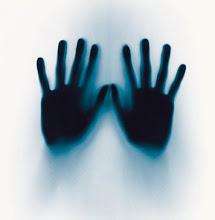When describing human trafficking across different regions of the world, the thought of Africa harkens images of child soldiers, specifically those kidnapped into the ranks of the LRA (Lord’s Resistance Army) in Uganda. To be sure, the abduction of children into forced military and personal servitude is one of the foremost issues plaguing the people of African nations. In fact, it is estimated that as much as 80% of the LRA’s ranks are abductees. In the LRA, young boys are taken from their families (who are often killed and mutilated by other “soldiers”) and forced to commit heinous acts of violence under the threat of death. Young girls are kidnapped to serve as concubines. However, the problem of human trafficking is not confined to the forced conscription of children, nor is it confined to Uganda. Trafficking has been reported in all 53 African nations for the purposes of forced military service, forced labor—industrial and domestic, as well as forced sexual exploitation. Children are particularly vulnerable, often be sold by parents and relatives and a sacrifice for alleviating the economic burden on the rest of the family. In Nigeria, the International Labor Organization estimates that over 12 million children, ages 10-14, are employed in strenuous labor conditions. These conditions included forces prostitution, which is one of the Africa’s major health and social problems. It is estimated by the United Nations that as much as 80% of trafficking in Africa is for the purposes of sexual exploitation, either in Africa or abroad. Given the high rates of sexually transmitted diseases and lack of access to prophylactics, traffickers have begun selling girls as young as 8 years old to ensure their “purity.”
The battle against human trafficking is a long and complicated one, because its root causes are deeply rooted in Africa’s long history of social, political, and violent struggle. The United Nations cites a primary impediment in the fight against trafficking as the lack of effective legal instruments for pursuing and punishing traffickers. In fact, a UN study notes that of the 125 countries that have signed onto the UN Protocol Against Trafficking in Persons, over a third are yet to make any convictions. It is difficult to force governments to be accountable, but one way to generate political momentum is to contact local representatives. Though an indirect approach, it is a crucial step in generating support for the implementation of long-term solutions.
Much trafficking is the result of economic hardships—lack of opportunity for pursue alternatives and lack of resources to combat traffickers. Donations to relief organizations or in the form of micro-loans will help build and sustain local communities in a way that empowers individuals to make their own decisions regarding their lives and their children’s.
Additional Links to Related Articles and Websites:
· http://www.antislavery.org/homepage/antislavery/trafficking.htm#africa
· http://appablog.wordpress.com/2008/04/22/south-africa-protecting-victims-of-human-trafficking-in-southern-africa/
· http://news.xinhuanet.com/english/2009-02/13/content_10810642.htm
· http://news.bbc.co.uk/2/hi/africa/3652021.stm
· http://www.stopdemand.org/afawcs0112878/ID=180/newsdetails.html
· http://www.bmj.com/cgi/content/full/328/7447/1036-b
· http://www.planusa.org/contentmgr/showdetails.php/id/443460
Video: this is a very informative video about the South African sex industry. It is very graphic in some places, however, so be advised.
· http://www.youtube.com/watch?v=gWSCBBMYMSg&NR=1
Literature:
International Law and the Use of Force
http://www.amazon.com/gp/product/0199239150/ref=s9_cpic_c2_t3?pf_rd_m=ATVPDKIKX0DER&pf_rd_s=center-2&pf_rd_r=0Y9A2B901KXGVBVH6E6J&pf_rd_t=101&pf_rd_p=463383371&pf_rd_i=507846
Not For Sale
http://www.amazon.com/Not-Sale-Return-Global-Trade/dp/0061206717/ref=pd_bxgy_b_img_c
Understanding Global Slavery
http://www.amazon.com/Understanding-Global-Slavery-Kevin-Bales/dp/0520245075/ref=pd_sim_b_5
Subscribe to:
Post Comments (Atom)


No comments:
Post a Comment